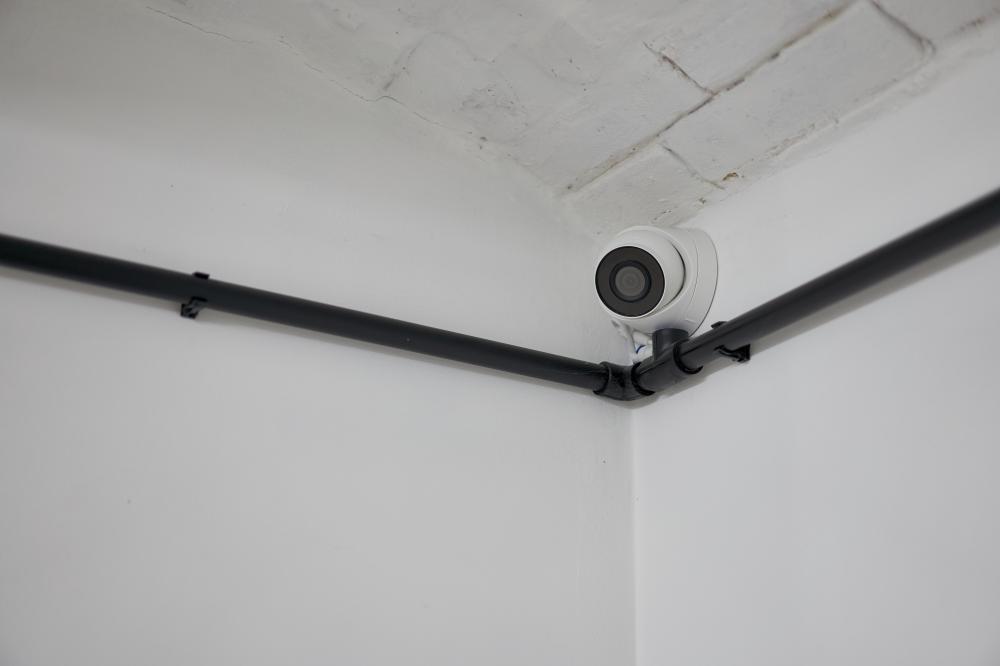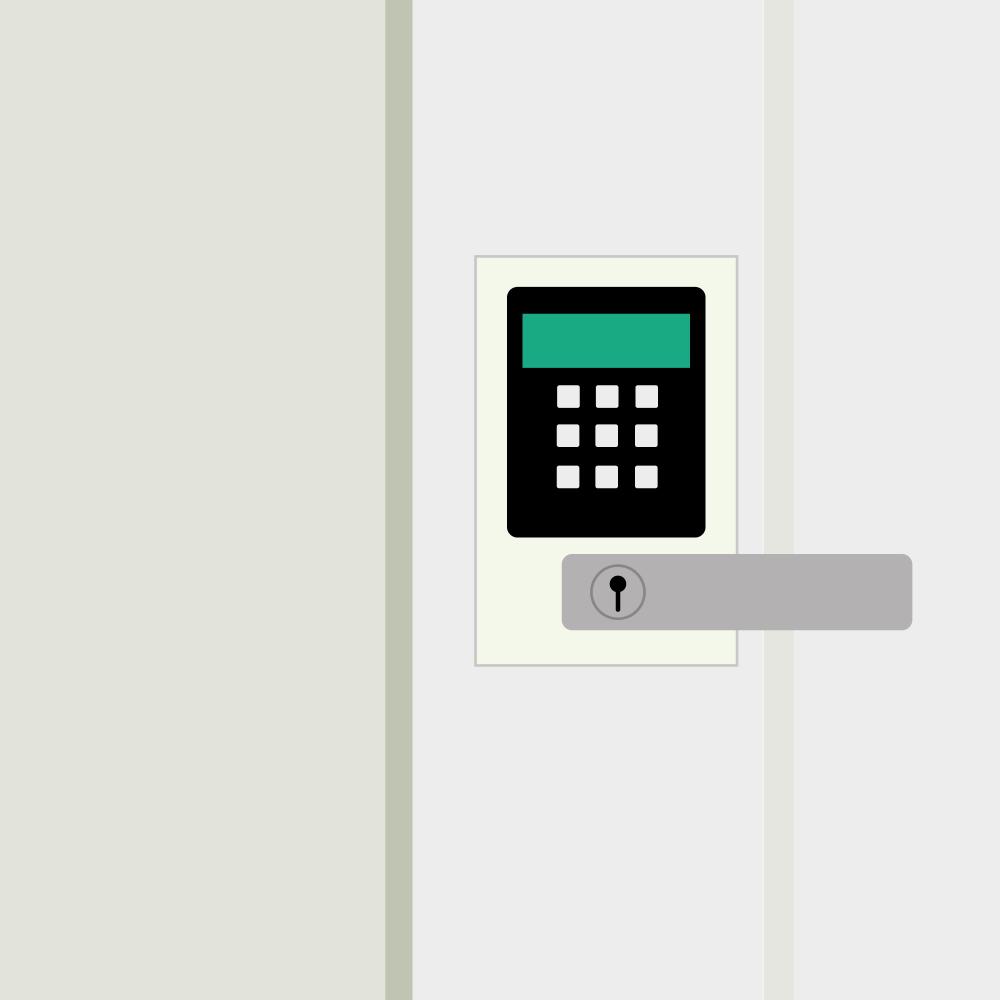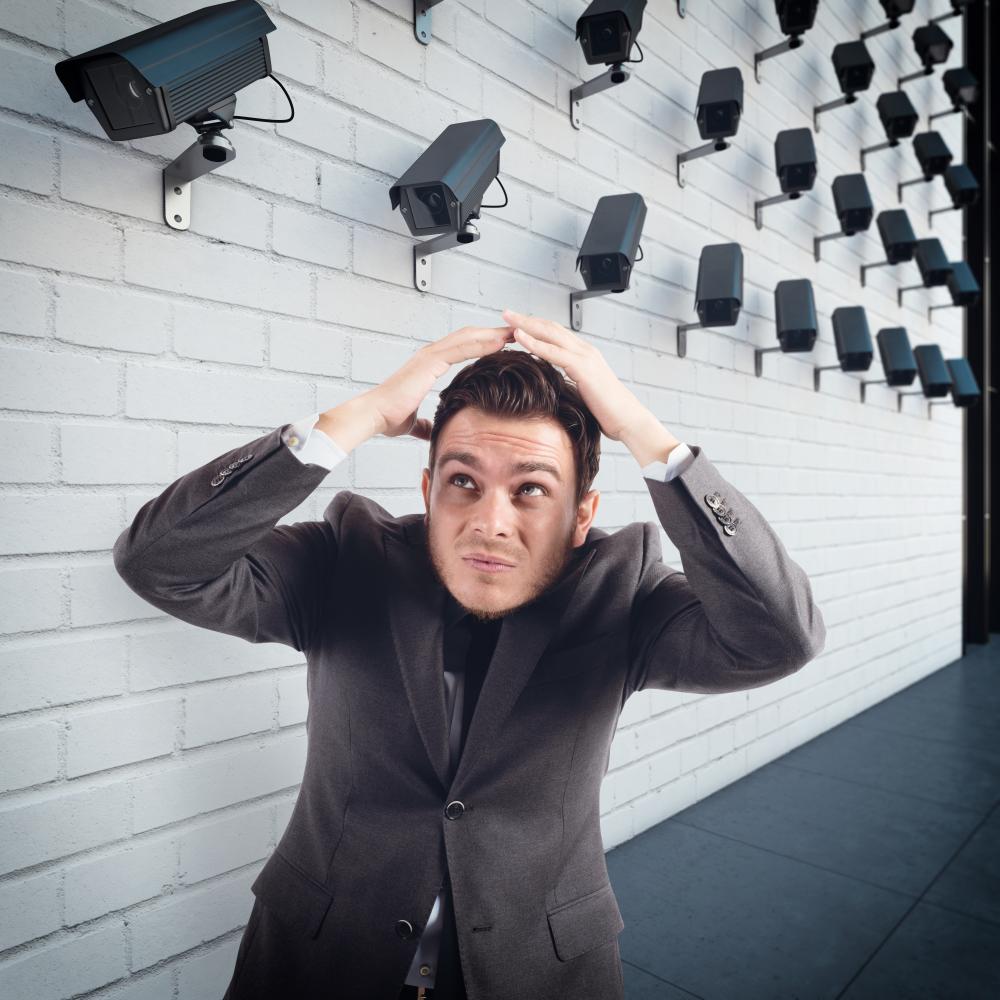
Understanding Wired Alarm Installation
Embarking on a wired alarm installation journey brings to the forefront a blend of reliability and robustness in enhancing home security. PRIMA by ARMGUARD, with its unwavering commitment to innovative solutions, emphasizes the significance of opting for wired systems. Unlike their wireless counterparts, wired alarm systems are less susceptible to interference and do not require frequent battery replacements, making them a steadfast choice for safeguarding your property.
Planning Your Installation
Before diving into the world of wired alarm installation, it’s crucial to meticulously plan and understand the components involved. The essence of a successful installation lies in the preliminary steps – selecting the right location for the control panel, mapping out the route for wiring, and deciding on the types and placements of sensors. Each property has its unique challenges and requirements, hence, customizing the installation process to fit your specific needs will ensure optimal coverage and security.
In our experience, engaging with customers through detailed consultations has spotlighted the diversity in security needs. Whether it’s a quaint suburban home or a sprawling estate, the approach to wired alarm installation requires a tailored strategy. This initial planning phase is a golden opportunity to address any particular concerns, from aesthetics to functionality, ensuring that the system not only protects but also complements the living space.
DIY vs. Professional Installation
At PRIMA by ARMGUARD, we celebrate the spirit of DIY among homeowners who are hands-on and prefer to undertake wired alarm installation themselves. Our DIY “Systems in a Box” Kits are designed with user-friendliness in mind, featuring a comprehensive 5-Step Wizard and one-button camera activation. This approach demystifies the installation process, empowering users with limited technical know-how to secure their homes effectively.
However, certain instances necessitate the finesse of a professional. Complex installations that involve intricate wiring or special requirements exceed the purview of standard DIY endeavors. Here, PRIMA by ARMGUARD’s network of seasoned security dealers steps in, offering their expertise to ensure that every nook and cranny of your property is under vigilant surveillance.
Reflecting on personal experiences, there’s a profound sense of accomplishment when homeowners successfully install their systems. But, the reassurance that comes from professional installation – knowing that every component is perfectly calibrated for optimal performance – is unparalleled. This dichotomy emphasizes the importance of assessing one’s capabilities and the complexity of the installation before deciding on the DIY route or seeking professional help.
Maintenance and Troubleshooting
Post-installation, the journey doesn’t end with merely enjoying a fortified home. Maintenance plays a pivotal role in ensuring the longevity and efficacy of your wired alarm system. Regular checks and prompt responses to any issues are crucial. Yet, despite the reliability of wired systems, they are not immune to wear and tear or occasional malfunctions.
PRIMA by ARMGUARD stresses the importance of routine inspections – looking out for any signs of damage to the wiring, testing sensors, and ensuring the control panel operates as intended. Sometimes, even the most minute disruptions can cascade into significant security vulnerabilities.
In the event of troubleshooting, our philosophy leans towards empowerment through education. Our content, whether through detailed guides or interactive tutorials, aims to equip homeowners with the knowledge to address common issues. This proactive approach not only enhances system reliability but also instills a sense of security and control among users.
- Wired alarm installation offers unmatched reliability for home security.
- Custom planning is essential for addressing individual security needs effectively.
- DIY installations can be empowering but may not suit complex setups.
- Maintenance and proactive troubleshooting are key to system longevity.
In conclusion, wired alarm installation is a journey that intertwines technical diligence with personal security aspirations. Whether you opt for a DIY project or professional installation, the essence of safeguarding your home remains paramount. Through careful planning, tailored approaches, and ongoing maintenance, the endeavor of installing a wired alarm system can significantly uplift the security posture of your property.

Understanding Hardwired Alarm Systems
In the realm of home security, the robustness and reliability of Hardwired Alarm Systems stand unmatched. Unlike their wireless counterparts, these systems are directly connected to the home’s power supply and communication networks, ensuring a constant line of defense. It’s a common misunderstanding that these systems are stuck in the past; in reality, they have evolved to become the backbone of modern, integrated security solutions, combining the reliability of hardwiring with the flexibility of wireless technology.
Our experience at PRIMA by ARMGUARD reveals that customers appreciate the peace of mind that comes with a Hardwired Alarm System. There’s an added layer of security in knowing that your system isn’t reliant on batteries that need frequent checking and replacing. Additionally, the hardwired connection helps prevent tampering and signal interference, aspects critical in maintaining uninterrupted surveillance and protection.
One of the less discussed benefits of installing a Hardwired Alarm System is its potential to add value to your property. Prospective homebuyers often view a pre-installed, high-quality security system as a valuable addition, making your property more appealing in the competitive real estate market.
The Hybrid Approach: Best of Both Worlds
At PRIMA by ARMGUARD, we’ve seen firsthand the evolution of Hardwired Alarm Systems into hybrid models. These systems start off hardwired, but with the inclusion of a wireless module, they can easily be expanded to incorporate wireless devices. This flexibility allows homeowners to customize their security system based on their specific needs, whether it’s adding motion sensors in distant corners of the property or integrating smart home devices for a more connected home experience.
The integration of hardwired and wireless technologies addresses one of the main concerns that homeowners have – the limitation in coverage due to the need for wires. With the hybrid model, the core components of the system remain hardwired for reliability, while the wireless elements can be strategically placed without worrying about connectivity or power supply issues.
Our journey in assisting customers with their security needs has shown us the importance of adaptability. The ability to integrate additional security measures without extensive rewiring or structural changes is not only convenient but cost-effective. This approach embodies a forward-thinking mindset in home security, ensuring your system can grow and adapt with your evolving needs.
When selecting a system, it’s crucial to consider not only the immediate security needs but also future expansions. The hybrid Hardwired Alarm System is a testament to the balance between enduring security and flexible adaptation.
Personal Experiences and Professional Insights
Through years of providing security solutions, I’ve encountered numerous instances where the reliability of a Hardwired Alarm System has been a decisive factor in preventing burglaries and ensuring quick emergency responses. One particular case that stands out involved a large estate where the comprehensive coverage of the hardwired system, complemented by strategically placed wireless devices, enabled swift action when a perimeter breach was detected.
The integration of hardwired systems with modern smart home technologies has also opened new avenues for comprehensive home management. In one memorable instance, a client was able to prevent a potential disaster when their hardwired smoke detectors, integrated into the home security system, alerted them to a fire in its infancy, allowing for immediate action.
The personal satisfaction that comes from providing a service that not only secures properties but also tangibly impacts individuals’ peace of mind is immense. It validates our commitment at PRIMA by ARMGUARD to innovating and adapting in the ever-evolving landscape of home security.
Understanding Secure Surveillance Cameras
At PRIMA by ARMGUARD, we’re committed to enhancing the safety and security of your environment through innovative technology. Secure Surveillance Cameras represent a crucial component of our smart security systems, designed not just to monitor but to actively safeguard properties and assets. Through years of experience and a keen understanding of digital threats, we’ve identified several key factors that contribute to the effectiveness and security of these systems.
Key Features of Secure Surveillance Systems
- Advanced Encryption: Ensuring data transmitted between the camera and storage is unreadable to unauthorized parties.
- Regular Firmware Updates: Keeping the camera’s software up-to-date to protect against new vulnerabilities.
- Strong Password Practices: Utilizing complex passwords and changing them regularly to prevent unauthorized access.
- Two-Factor Authentication: Adding an extra layer of security beyond just a password to access the camera’s data.
In my professional journey, I’ve encountered numerous instances where outdated or poorly configured systems fell victim to hackers, emphasizing the importance of these features. Sharing expertise and personal insights, we aim to empower our clients with knowledgeable choices, ensuring they select the most secure cameras for their needs.
Selecting the Right Camera
Selecting Secure Surveillance Cameras that align with your security goals is paramount. Through our “Systems in a Box” Kits, we provide a user-friendly platform, enabling customers to choose their security setup confidently. This DIY approach doesn’t just cater to convenience; it’s about making informed decisions with support from experts whenever needed.
During one memorable client interaction, the discussion led to a revelation about the importance of site-specific security needs. Whether for residential or commercial use, understanding the unique challenges of each location allows for the customization of security measures. It’s not just about having a camera in place but ensuring it’s the right fit for the intended purpose.
Considerations for Camera Placement
- Visibility vs. Concealment: Balancing deterrence with the need for discreet monitoring.
- Environmental Factors: Choosing cameras capable of withstanding local weather conditions.
- Area Coverage: Ensuring the field of view is adequate for comprehensive surveillance.
Embracing Technology for Enhanced Security
The evolution of Secure Surveillance Cameras has been remarkable, transitioning from mere recording devices to intelligent systems capable of distinguishing between routine movements and potential security threats. At PRIMA by ARMGUARD, we’re at the forefront of integrating AI-powered features like Smart Self-Healing WiFi Video Doorbells into our offerings. These innovations are not just technological advancements; they represent a shift towards proactive security solutions.
Our commitment extends beyond product offerings to include educational opportunities for security professionals. Through the Napco Professional Prima Trainings, we’re building a community well-versed in the latest security solutions. This dedication to knowledge sharing ensures that our clients benefit from the most advanced, secure, and effectively managed surveillance systems available.
As we continue to navigate the complexities of digital security, our focus remains on providing Secure Surveillance Cameras that offer peace of mind. From initial selection to ongoing management, we stand by our clients, delivering systems designed to meet today’s security challenges. It’s a partnership aimed at outsmarting potential threats through innovation, education, and superior technology.

How much does it cost to hardwire a security system?
When considering the installation of a hardwired security system, the costs can vary widely based on several factors, including the size of your property, the complexity of the system, and the quality of the components used. On average, homeowners might spend anywhere from $800 to $1,600 for a basic setup. However, for larger estates or systems that include advanced features like integrated smart home technologies, the expenses can easily climb upwards of $2,000 to $3,000.
It’s key to remember that while the initial outlay might seem steep, the long-term reliability and minimal subsequent maintenance can make it a cost-effective solution over time. Additionally, some insurance companies offer reduced premiums for homes with professionally installed security systems, which can help offset some of the installation costs. Thinking about the peace of mind and added property value, the investment often justifies itself.
How to install a wired burglar alarm system?
Installing a wired burglar alarm system is a meticulous process that involves several steps. Initially, planning is paramount; start by designing a layout that identifies where the control panel, sensors, and alarms will be placed. It’s crucial to ensure that sensors cover all potential entry points and that the control panel is in a convenient yet secure location.
After planning, the next steps involve running the wires from each sensor back to the control panel. This can be the most challenging part, particularly in finished homes where you might need to navigate wires through walls and ceilings. A drill, fish tape, and a keen understanding of your home’s structure are essential tools. Once everything is wired, the final step is programming the control panel and testing the system to ensure it operates correctly.
For those who are less technically inclined or facing a complex installation, seeking professional help can save a lot of time and avoid potential mistakes that could compromise your system’s effectiveness. Remember, the goal is not just to install a system but to ensure it provides comprehensive protection for your home.
Are wired home alarm systems better?
This is a common question and the answer can depend on several factors, including your specific security needs, property layout, and personal preferences. Wired alarm systems are celebrated for their reliability and stability. They operate independently of Wi-Fi or cellular signals, which means they’re not susceptible to the same types of interference that can impact wireless systems. This can make them a more secure choice in environments where wireless signal strength is a concern.
However, wired systems can be more invasive to install, particularly in homes that aren’t pre-wired for security systems. On the flip side, wireless systems offer easier installation and flexibility, but may require more maintenance, like battery replacements, and can be more vulnerable to hacking.
Ultimately, both systems have their merits. Wired systems might be preferable for new construction or during major renovations, while wireless systems can be ideal for renters or those in older homes not pre-wired for security.
How long do wired alarm systems last?
The lifespan of a wired alarm system can be significantly long, often exceeding 10-15 years, given proper maintenance. The robustness of wired systems is one of their standout features, as they’re not subject to the battery life concerns that wireless components face. That said, the longevity of your system will also depend on the quality of the installation and the components used.
Regular maintenance checks, including inspecting wires for damage, ensuring sensors are clean and functional, and testing the system’s operation, can help prevent issues that might otherwise shorten its lifespan. While wired systems are generally very reliable, evolving technology means you might choose to upgrade certain components over time to benefit from newer features or improved functionality, adding more years to your security setup.
How do you choose the right security system for your property?
Choosing the right security system for your property involves assessing your specific security needs, the layout of your property, and your budget. It’s important to consider what you’re protecting against, be it intruders, environmental hazards, or monitoring specific areas of your property. Large properties might require systems with extensive coverage and advanced features like perimeter surveillance, whereas a smaller residential home might need a more basic setup.
Think about the future too. Opting for a system that allows for scalability and integration with smart home technologies can provide added convenience and enhance your property’s security as your needs evolve. Consulting with security experts, like those at PRIMA by ARMGUARD, can provide personalized recommendations based on your unique situation, ensuring you select a system that offers the right balance of security, convenience, and peace of mind.
Security Resources
- Physical Security – Cybersecurity and Infrastructure Security Agency (CISA): Explore resources on physical security measures to protect your property.
- Understanding Alarm Systems – National Institute of Justice (NIJ): A comprehensive guide on alarm systems and their installation.
- National Fire Alarm and Signaling Code – National Fire Protection Association (NFPA): Learn about fire alarm systems and regulations for fire safety.



